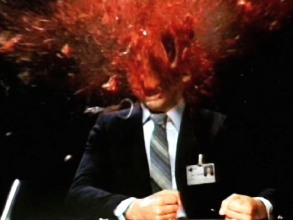
Being clear about what you really want and why you want it is essential if you want to bring about a behavioral change. The what and the why provide you with direction: your highly desirable outcome. But if you don’t feel a sense of urgency about creating that outcome, you’re likely to continue operating on the assumption that you can choose whether or not to do what you need to do to get there.
If you want to change the status quo, the outcome you’re after has to be so compelling that you’re willing to give up the freedom to not have it. I’ll give you a personal example.
Vitality is a highly desirable outcome for me. One thing that contributes significantly to my level of vitality is a combination of physical activities, such as walking, hiking, using a treadmill, and strength training. I generally enjoy doing those things as much as I enjoy the results of doing them. A couple of years ago, I had a much more regular schedule that allowed me to walk nearly every morning, hike a couple of times a month, and get in four strength training sessions a week at the gym. But that hasn’t been the case for the past year.
When my schedule changed, my level of physical activity declined and became hit-or-miss instead of regular. At the beginning of last summer, I decided to start walking for 25-35 minutes every day. That seemed like something I could reasonably commit to. Although it wasn’t ideal, it was a start. So from May 31st through today, I have walked or walked and used a treadmill every single day, no exceptions.
In September, I decided to increase my target to 45 minutes a day and have reached that most days. In December, I took a deeper look at how important vitality really is to me (VERY!) and realized that walking wasn’t enough. I get a better aerobic workout on a treadmill. In fact, I’d made a few attempts to get over to the gym to use the treadmill in the fall, but didn’t get far because I felt like I had a choice as to whether or not to do it. On December 19th, after an insanely busy two weeks, I decided to start using the treadmill three times a week, no exceptions. Since the best I’d managed during the previous 12 months was three times in one month, I may have been overly optimistic.
But even though my schedule isn’t any more accommodating than it was before, I am now using the treadmill three times a week. The difference is that having decided to do it, I stopped giving myself a choice. I schedule the day and time I’m going to go to the gym. I may have to reschedule once in a while, but because I have no choice, I always get my three sessions in.
Going to the gym brought home to me how much I miss strength training and how wonderful I felt when I was doing it. I had a portable weight bench in the garage and a few sets of hand weights in a closet, and I realized that even if I couldn’t go to the gym to do it, I could do some upper body strength training at home. So on January 1st, I decided to include three 30-minute sessions of upper-body strength training each week, no exceptions.
Of course, I feel much better as a result of all of the increased physical activity, but maintaining this schedule is far from easy or comfortable. It’s winter now, and on the days I’m scheduled to walk outside for 45 minutes, the wind chill might be in the mid-20s, and snow might be blowing directly in my face. Winter, to put it mildly, is not my favorite season. I’ve been known to hike in the Sandia foothills when the temperature was in the mid-90s. If I could dress in shorts, T-shirt, and sandals all year, I would be ecstatic. But as I’m writing this, we’ve just had three brutally windy and cold days in a row, the coldest so far this winter. If I gave myself a choice as to whether or not to put on multiple layers of clothing and subject myself to the elements, I would never do it.
But having made the decision to invest in my vitality, I’m willing to tolerate (not always silently) the discomfort and occasional pain in the moment for the medium and long-term outcomes I’m after. And because I don’t have a choice in the matter, I don’t waste any time whatsoever debating whether or not to follow through or trying to talk myself in or out of doing what I have decided to do.
When the path ahead is clear, why wouldn’t you take the obvious next step?
By giving up the freedom to not have it, I get to have what I really want. And although it isn’t always easy, it is astonishingly simple.
Note: This is the fourth in a series of posts. To follow the thread, select the category Making Different Choices in the box under Explore.





